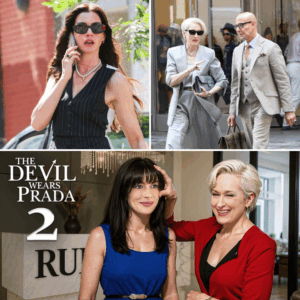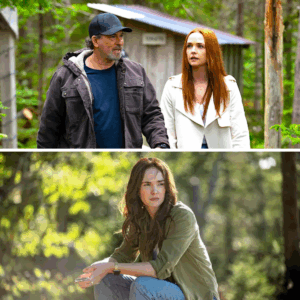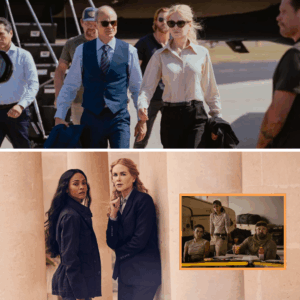Jodie Foster, the two-time Oscar-winning actress, director, and producer, has long been celebrated for her versatility and depth in the film industry. At 62, Foster continues to push artistic boundaries, as evidenced by her latest role in the French-language thriller Vie Privée (A Private Life), which premiered at the Cannes Film Festival on May 20, 2025. The film, directed by Rebecca Zlotowski, marks Foster’s first leading role in a non-English-language project, a daring endeavor that required her to perform almost entirely in French. Reflecting on this experience in a Vanity Fair interview, Foster shared a profound insight: “I feel a lot freer… I’m a different person in French than I am in English.” This statement encapsulates not only her transformative journey with Vie Privée but also her lifelong connection to the French language and culture. This article explores Foster’s experience in the film, the significance of her linguistic duality, the reception at Cannes, and what this role reveals about her evolving identity as an artist.
A Transformative Role in Vie Privée
Vie Privée represents a significant milestone in Jodie Foster’s career—a return to French cinema after more than 20 years and her first time leading a non-English-language film. In the movie, Foster plays Dr. Lilian Steiner, a renowned American psychiatrist living in Paris who becomes convinced that her patient Paula (played by Virginie Efira) did not commit suicide but was murdered. Driven by this belief, Lilian embarks on a personal investigation, uncovering layers of mystery while confronting her own self-doubts and neuroses. The film, described by Deadline as a blend of psychological thriller, dark comedy, and character study, features a stellar French cast, including Daniel Auteuil as Lilian’s ex-husband, Mathieu Amalric, Vincent Lacoste, and Luana Bajrami.
Foster’s performance has been widely praised for its nuance and authenticity. Critics have noted her ability to balance the film’s darker, suspenseful moments with lighter, comedic exchanges, particularly opposite Auteuil. A standout scene, highlighted in the Deadline review, involves Lilian and Auteuil’s character breaking into a suspect’s home in a Nancy Drew-esque caper, showcasing Foster’s playful yet determined approach to the role. Her character’s complexity—dryly comic yet loaded with neuroses—resonates deeply, as Lilian grapples with professional guilt and personal turmoil. Foster herself relished the chance to play with the French language, particularly in moments where she says “murder” with a thick French accent, adding a campy flair to her performance.
The preparation for this role was a significant challenge for Foster, who admitted the difficulties of learning lines in a second language at 62. “This was a huge, huge challenge,” she told Vanity Fair. “When you get older, it’s really hard to learn lines—so learning lines in a different language is one hundred times harder.” To immerse herself, Foster moved to Paris a month before filming began, avoiding English to get her “mouth moving” and adapt her brain to speaking French constantly. She memorized her dialogue with a rigor beyond her typical process, avoiding improvisation to prevent flustering herself. This dedication paid off—her French has been described as pitch-perfect, with critics likening her to native speakers like Isabelle Huppert.

Linguistic Duality: A Different Person in French
Foster’s statement, “I’m a different person in French than I am in English,” offers a window into the transformative power of language on her identity and performance. She elaborated in the Vanity Fair interview, saying, “I’m a much lighter person in French. I’m not as confident. I’m a little more vulnerable… I’m always scared that I’m going to make a mistake.” This vulnerability, rather than hindering her, enhances her authenticity in the role of Lilian Steiner. Foster’s fear of making mistakes in French—a language she has spoken fluently since childhood—adds an emotional layer to her performance, making Lilian’s struggles feel more real and relatable.
Foster’s fluency in French dates back to her early years. She attended the Lycée Français de Los Angeles, a French-language prep school, where she became fluent by the age of 11. Her family’s time living in France further deepened her connection to the culture, and she has dubbed her own films in French, including Panic Room (2002) and Anna and the King (1999). Over the years, she has acted in several French-language projects, such as Éric Le Hung’s Moi, fleur bleue (1977) and a supporting role in Jean-Pierre Jeunet’s A Very Long Engagement (2004). Her command of the language has earned her widespread admiration, with native French speakers often noting her near-perfect accent and natural flow.
However, Foster’s reflections reveal a nuanced relationship with her second language. Speaking French makes her feel “freer,” a sentiment that contrasts with her more guarded persona in English. In a Variety interview, she noted that she finds it easier to be funny in French, explaining, “Maybe it’s easier for me to just be free of my persona or something.” She contrasted this with her experience in English-language comedies, which she often finds lacking in subtlety or intelligence, citing her role in Maverick (1994) as a rare exception due to its witty script by William Goldman. This linguistic duality—being lighter and more vulnerable in French—allowed Foster to tap into a different side of herself in Vie Privée, bringing a fresh perspective to her acting.
Reception at Cannes: A Triumphant Return
The premiere of Vie Privée at Cannes on May 20, 2025, was a moment of triumph for Foster. The film, screened out of competition at the Grand Théâtre Lumière, received an 8-minute standing ovation, a significant accolade at a festival known for its discerning audiences. Foster, visibly moved, embraced Zlotowski on stage, gesturing toward the director to share the spotlight, a gesture that underscored her humility. The audience included cinematic luminaries like Scarlett Johansson, Gael García Bernal, and Adrien Brody, adding to the event’s prestige.
Cannes has been a significant part of Foster’s career since her first appearance in 1976 at the age of 13, when she attended with Taxi Driver, which won the Palme d’Or. Even then, she impressed attendees with her fluent French, answering press questions without a translator. She has returned to the festival multiple times, including in 2021, when she received an honorary Palme d’Or for lifetime achievement. Her 2025 premiere with Vie Privée was a full-circle moment, celebrating her long-standing connection to French cinema and her ability to captivate audiences in a second language.
Critical reception of the film has been largely positive. Deadline called Foster’s performance “remarkable,” highlighting her ability to navigate both the darker and lighter moments of the story. Variety praised her “intense, nuanced performance,” noting the film’s upscale, Paris-set psychological thriller elements. Posts on X echoed this sentiment, with users describing the film as “stylish” and “engaging,” and Foster’s French as “truly amazing.” However, the film’s out-of-competition status has drawn some scrutiny, with some critics suggesting it might have been overlooked for awards due to its commercial appeal and star-driven narrative.
Broader Implications: A Cultural and Personal Journey
Foster’s role in Vie Privée and her reflections on being a different person in French carry broader implications, both culturally and personally. Culturally, her return to French cinema after more than 20 years highlights the power of cross-cultural storytelling. At a time when the global film industry is navigating the rise of streaming platforms and shifting audience preferences, Foster’s collaboration with Zlotowski—a prominent French director—demonstrates the potential for meaningful partnerships between American and European filmmakers. Her fluency in French allows her to authentically engage with French narratives, challenging the notion that Hollywood stars are disconnected from international cinema.
On a personal level, Vie Privée represents a journey of self-discovery for Foster. Her statement, “I feel a lot freer,” suggests that working in French allowed her to shed some of the weight of her public persona, which has been shaped by decades of scrutiny and high-profile roles. Foster has often played solitary women under pressure—think Clarice Starling in The Silence of the Lambs (1991) or Ellie Arroway in Contact (1997)—and her guarded nature in interviews reflects a desire to maintain privacy. Speaking French, a language where she feels less confident, paradoxically liberated her, enabling a vulnerability that enriched her performance.
This role also aligns with Foster’s recent career trajectory, which has seen her take on projects that resonate deeply on a personal level. Her Emmy-winning role in True Detective: Night Country (2024) and her Oscar-nominated performance in Nyad (2023) reflect her selectivity—she told Variety, “I’m picky… It has to really speak to me.” At 62, Foster has expressed a newfound contentment, noting in the same interview that turning 60 brought “a freedom” to her career. This freedom is evident in her willingness to tackle a French-language leading role, a challenge that required her to step outside her comfort zone and rediscover herself as an artist.
Critical Examination: Beyond the Narrative
While Foster’s experience with Vie Privée has been celebrated, a critical examination reveals some nuances. Her statement about feeling freer in French, while insightful, must be viewed in the context of her long-standing relationship with the language. Foster’s fluency is exceptional, but native speakers have noted minor imperfections, such as occasional noun gender errors, which suggest that her French, while near-native, is not entirely indistinguishable from a native speaker’s. This challenges the narrative of her “perfect” French, highlighting the effort and vulnerability behind her performance.
The 8-minute ovation at Cannes, while a testament to the film’s impact, must also be viewed critically. Cannes ovations are often inflated, driven by the festival’s communal energy and the presence of a star like Foster. While the applause reflects genuine admiration, it also underscores the festival’s tendency to celebrate legacy figures, which may amplify perceptions of Foster’s triumph. The film’s long-term success will depend on its reception beyond Cannes, with releases planned in France by Ad Vitam and in North America by Sony Pictures Classics.
Conclusion: A Journey of Freedom and Identity
Jodie Foster’s role in Vie Privée and her reflection—“I feel a lot freer… I’m a different person in French than I am in English”—offer a profound insight into her artistic and personal evolution. At 62, Foster continues to challenge herself, embracing the vulnerability of performing in a second language to deliver a performance that is both transformative and authentic. Her return to French cinema after more than 20 years, celebrated with an 8-minute ovation at Cannes 2025, reaffirms her status as a global cinematic icon and a bridge between Hollywood and French cinema.
Beyond the film itself, Foster’s journey with Vie Privée highlights the power of language to unlock new dimensions of identity. By stepping into the lighter, more vulnerable persona she associates with French, Foster not only found freedom but also deepened her connection to her craft. As she continues to navigate her career with the same selectivity and passion that have defined her for decades, Foster’s experience in Vie Privée serves as a reminder of the enduring magic of cinema—and the freedom that comes with embracing one’s true self, in any language.





